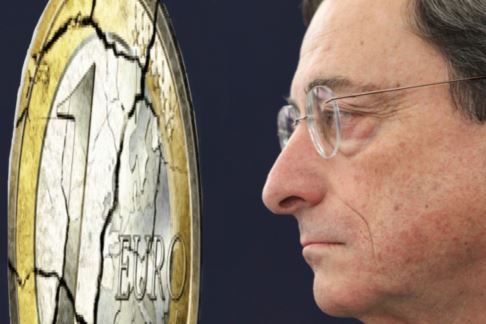The Pension Crisis Will Break Up the EU
The German public broadcast agency ARD is proposing structural changes. Due to the low-interest rates, the ECB has placed the agency in hard times with its pensions. Karola Wille, the director, has called for struct ural reform to reduce costs. The proposal centers on technological change to increase efficiency in the performance of its mandate. They are also looking at developing cross-media applications to modernize the agency. The ARD is non-profit so the German government has to fund it. As the low-interest rates have undermined pensions throughout Europe, the governments will have to step up and bail them out. This is going to put tremendous pressure on the entire EU budget and austerity policy embedded within the single currency.
ural reform to reduce costs. The proposal centers on technological change to increase efficiency in the performance of its mandate. They are also looking at developing cross-media applications to modernize the agency. The ARD is non-profit so the German government has to fund it. As the low-interest rates have undermined pensions throughout Europe, the governments will have to step up and bail them out. This is going to put tremendous pressure on the entire EU budget and austerity policy embedded within the single currency.
We are looking at the same story being painted throughout Europe. The low-interest rate policy for nearly 10 years has not merely destroyed the bond market in Europe, it has undermined the pension system both privately and publicly. Indeed, adding to this crisis is the mandate that all pension funds hold some or the majority of their investments into government debt. The combination of these policies clashes with the ECB and the nightmare on the horizon and why Draghi can’t leave fast enough to avoid personal blame.
This crisis all stems from the structural design of the EU. They tried to be half pregnant with only a single currency and dictatorial control over member state budgets. The refusal to consolidate the debt emphasized the problem of the great disparities in cultures and the prevailing prejudices that exist through Europe between member states as well as within member states such as Bavaria v northern Germany or Spain v Catalonia, Scotland v Britain, Italy v Sicily, etc.. This prevailing prejudice is also why the bail-in policy was adopted. If Italian banks failed, then a centralized source of funds would amount to transfer payments between one member state to another. This was the very reason the EU rejected debt consolidation, to begin with. True, Greece was offered “loans” but its feet were held to the fire to pay it back. That was again rejecting any idea of a single Europe implied by transfer payments v loans.
Furthermore, as this pension crisis matures, we will have the same problem of transfer payments. This is how and why the EU will break apart because there is no actual resolution to consolidate the debts. The talk of Eurobonds is merely a way for the EU to borrow, but it will still not result in debt consolidation. What they are proposing is the same structure as the mortgage-backed CDO crisis of 2007. Bundling member state debt into a single Eurobond but each member still is responsible for its own debt. The structural failure of the EU has been all about how they could have their cake and eat it too. This is also why none of the leaders in Brussels ever stand for election. They are embedded in a deliberate denial of any democratic process.

